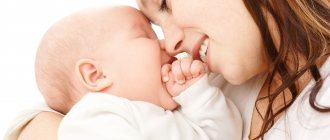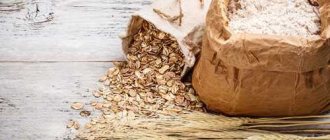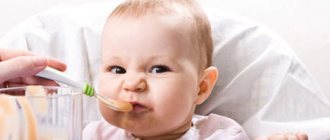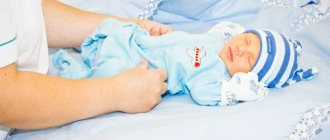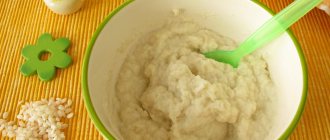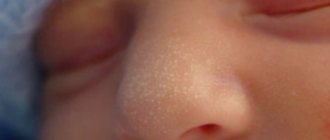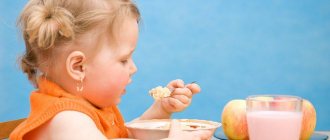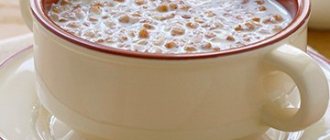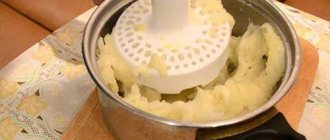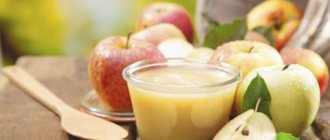Young children have an insufficiently developed digestive system, so even a slight deviation from their usual diet can lead to diarrhea. In addition, a child’s weak immune system cannot fight back against negative factors that negatively affect the functioning of not only the digestive system, but also the body as a whole. Loose stools are common in babies. But you need to distinguish a normal stomach upset from diarrhea caused by diseases of an infectious nature, and if a child has diarrhea with an odor, you need to consult a doctor to find out the cause and begin proper treatment.
Causes of diarrhea with odor
Diarrhea with a rotten smell in a child occurs for several reasons. Most often, the causes are viruses or bacteria that have penetrated inside, sometimes diseases of the intestines (large).
Putrid dyspepsia
In a pathological condition, the process of digesting protein foods and decomposing it in the intestines is disrupted. Pathology can occur when:
- intestinal hypersecretion;
- decreased pancreatic function;
- introducing a large amount of protein foods into the diet.
With putrefactive dyspepsia, children experience bloating, diarrhea, and belching. Loose stools have a rotten egg smell.
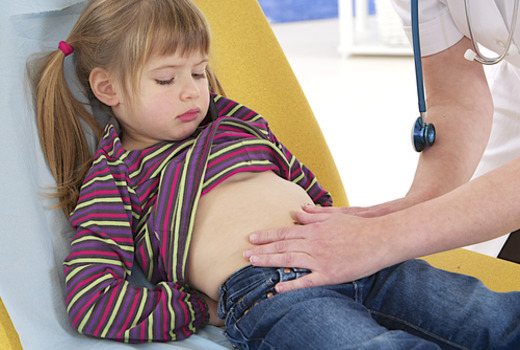
Dysentery
The disease, resulting from an infectious nature, affects the digestive system, in particular the large intestine. At the beginning of the disease, the child complains of dull pain in the abdominal area, but it becomes stronger and becomes acute. The area of localization of pain is the lower right corner of the abdomen. The mild form of dysentery is the safest, but the severe form can lead to intoxication of the entire body. At the first sign, you need to provide medical assistance.
Salmonellosis
The cause of the disease can be the consumption of food that has not undergone heat treatment. These include: meat, fish, eggs, milk.
Signs of salmonellosis in children:
- the head is very dizzy;
- weakness;
- febrile temperature;
- headache;
- stomach ache;
- nausea, loose stools with foam and green mucus.
In addition, there is flatulence, a white coating on the tongue and dry mouth. For treatment, the doctor prescribes enzymatic, enterosorbing and antibacterial drugs.
Rotavirus infection
The infection enters the body through contaminated food and airborne droplets. A sick child experiences an increase in temperature, with a sharp jump, pain in the intestines and abdomen, vomiting, loose stools with a rotten smell. The baby becomes lethargic and weak. The doctor prescribes complex treatment with antipyretic, anti-inflammatory and antiseptic drugs that normalize intestinal function and improve microflora.
Enterovirus
The pathological condition is caused by the Coxsackie virus. After the incubation period, which lasts 7 days, the child experiences symptoms such as:
- apathetic and lethargic state;
- submandibular and cervical nodes increase in size;
- refusal to eat.
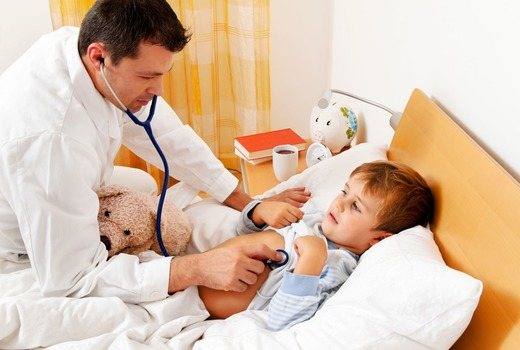
Enterovirus infection leads to serious complications, for example, inflammatory processes in the brain or spinal cord, heart, so you need to recognize it and consult a doctor in time.
What should a mother's diet be like if her baby has loose stools?
If there is an infection in the body, it is necessary to reduce the dose of food consumed. If the child is bottle-fed, then it must include fermented milk mixtures. If necessary, add half a mezim-forte tablet. The mother should carefully monitor the baby’s reaction to any product.
Over time, his body will be able to adapt to the changes as much as possible. Loose stools are a consequence of the lack of necessary enzymes to digest a certain component. It’s easy to identify – just pass all the necessary tests.
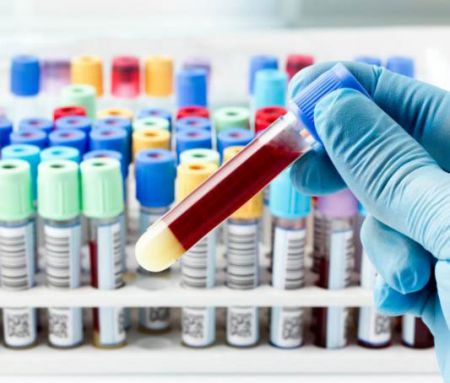
To determine the cause of loose stools, it is necessary to undergo tests
Diarrhea in infants with a sour odor
If a child has diarrhea with a sour odor, it is first recommended to rule out fermentative dyspepsia. During diarrhea, you can observe rumbling in the abdomen and bloating. In addition to the sour smell, the stool may have a greenish tint and may foam. These signs may indicate that the body cannot fully absorb milk sugar; there may be dysbacteriosis or enzyme deficiency.
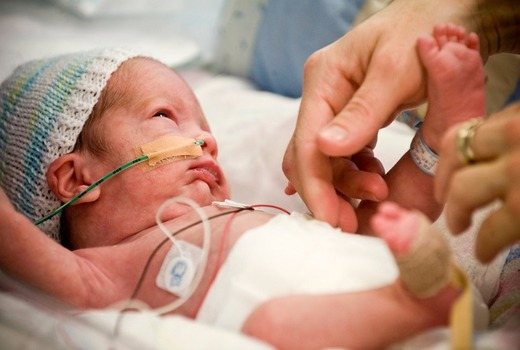
Situations requiring treatment
- The frequency of stool has increased, the stool has become watery and has an unpleasant odor. Sour-smelling stool often indicates lactose deficiency. The smell is putrid, pungent and appears with a viral or bacterial infection of the intestines and the intestinal form of cystic fibrosis. Severe diarrhea more than 12 times a day indicates damage to the small intestine, most often due to a viral infection.
- Body temperature rose.
- The stool is green, foamy, with a lot of mucus, often mixed with blood. At the same time, the child is restless, refuses to eat, and does not sleep. This situation often develops with bacterial damage to the large intestine and with allergic reactions to food or medications.
- In addition to diarrhea, vomiting and regurgitation appeared, the child did not gain or lost weight. Weight change in children in the first year of life is an important indicator of health.
First aid
If a child has diarrhea with an odor, first aid must be provided. It will be similar to the help provided for a common bowel disorder.
- The child should be given water to drink often and always in small portions. You cannot replace water with canned and natural juices, cocoa, tea, especially milk. You can give dried fruit compote.
- If a child wants to eat, then he needs to be fed easily digestible food. It is forbidden to give fried, rough and fatty foods. Portions should be small.
- It is necessary to monitor the child’s condition in order to describe his condition to the doctor in full. You need to pay attention to every little thing: how often the baby defecates, measure the temperature, observe the color of the stool.
After diarrhea appears, it is recommended to analyze your diet and understand which foods could cause diarrhea.
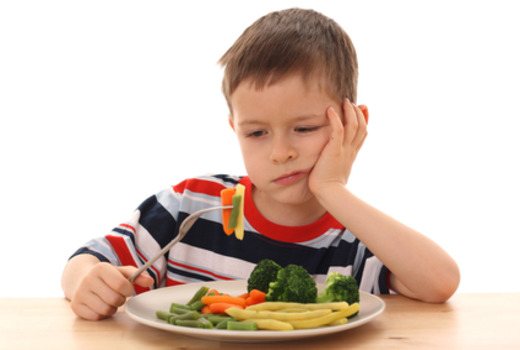
For your information! If diarrhea occurs in an infant who is still breastfed, additional complementary foods should be excluded, but breast milk should not be excluded. It should be present in the baby’s diet, but it should be given in sips.
This is due to the fact that breast milk has an immunostimulating effect and will help the young body overcome the infection.
Older children can be prohibited from eating for 1-2 days. During this time, the body itself will restore its strength and cleanse itself of toxins and waste, so additional food will only bring harm.
Signs of diarrhea in a newborn
Normal stool in a newborn baby is of uniform consistency. There are no impurities in the feces, the color is from yellow to light brown. Has the smell of sour milk. Breastfed babies have up to 8 bowel movements after each feeding. In a 2 month old baby, stool occurs within 5 times. In a three-month-old child - twice a day or once a day, it becomes more uniform and dark. The frequency of stool in a five-month-old baby is 1 time per day. The stool of bottle-fed babies sometimes takes on a green tint. This is normal.
With intestinal disorders, it is possible to see mucus in the stool. The baby defecates more often than usual. The stool contains foam and milky lumps. The stools are green in color and accompanied by a foul odor. These signs help the mother determine that the child is sick.
At the slightest suspicion of diarrhea in a baby, it is better to refuse diapers. Modern diapers are excellent at absorbing liquid, which can make it difficult to detect diarrhea in a baby.
You should call a doctor if your child has symptoms:
- Lethargy, inactivity of the baby;
- Foamy or blood-streaked stool;
- Signs of dehydration: crying without tears, dry, pale lips, small amount of urine;
- Loose, frequent stools for more than a day;
- Increased body temperature;
- The child presses his knees to his stomach, which indicates pain in the organ.
It is important to recognize diarrhea from the very beginning and prescribe timely treatment so that the baby does not become dehydrated. It is not recommended to treat a child on your own, so as not to aggravate the situation.
When do you need a doctor?
Calling a doctor is necessary in the following cases:
- the baby started having diarrhea;
- stool containing blood;
- there are signs of dehydration;
- the child complains of severe pain in the abdomen;
- vomiting occurs simultaneously with diarrhea;
- loss of consciousness;
- convulsive syndrome.
Sometimes, as a result of severe diarrhea, dehydration can occur, which threatens the health and life of the little one.
Three stages of dehydration:
- Compensated form. The initial stage is observed with a fluid loss of 5% of the baby’s weight. The condition is accompanied by thirst, and dry mucous membranes are observed.
- Subcompensated form. In this case, dehydration is accompanied by symptoms: the skin becomes flabby, dryness is felt, the fontanel sinks in infants, and rare urination is observed. Children behave restlessly and are capricious. At this time, the child loses 5-10% of his weight in fluid.
- Decompensated form. Weight loss – more than 10%. The child's skin becomes pale, the skin and nasolabial triangle appear blue. The condition is accompanied by shortness of breath, convulsions, and lack of urination.
To prevent dehydration of the body, it is necessary to give the child rice water and dried fruit compote already at the 1st stage. If dehydration has progressed to stage 2, a water-salt solution is recommended.
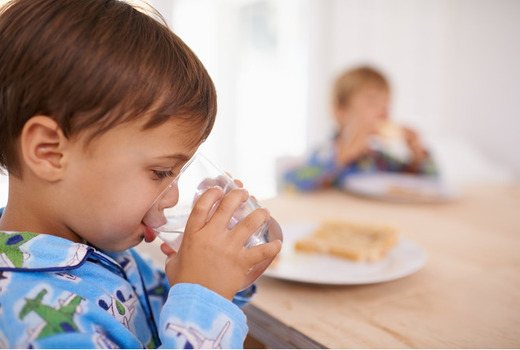
Traditional methods
In folk medicine, there are many recipes that will help stop diarrhea without the use of medications.
- The dried film from chicken gizzards should be crushed and given to the baby twice a day, 0.5 tsp, after dissolving the powder in water.
- In 1 tbsp. cold boiled water will need to dissolve 2 tsp. starch. The baby should take the drug 3 times a day, 100 ml. You can brew jelly.
- It is recommended to include rice porridge cooked in water without salt into your diet.
- Rice decoction should be taken hourly, 1 tsp. Infants are given 2-3 drops of rice water. The folk medicine envelops the walls of the stomach and has a softening property.
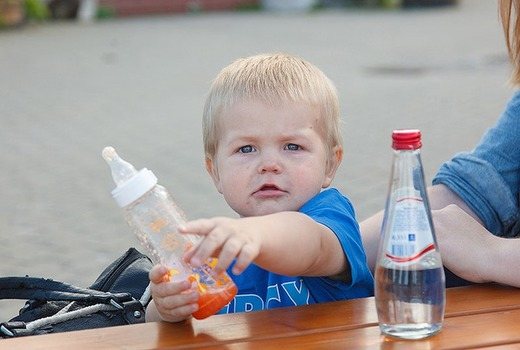
You shouldn't look for super recipes with herbs. We must remember that the health of the child is at stake, so it is better to use traditional recipes of traditional medicine, which justify themselves by their effectiveness.
Diet
Treatment of a toddler should be comprehensive. At this time, you need to pay attention to nutrition.
Allowed foods for diarrhea with odor:
- bread crumbs;
- meat or fish broth;
- boiled chicken or seafood;
- rice porridge with water and no salt.
Under no circumstances should you give dairy products, spicy foods, fruits and vegetables, berries, cakes, and semi-finished products.

Prevention
In order not to bring the body to a deplorable state, you must follow some rules:
- After visiting the toilet or counting money, you should wash your hands thoroughly with soap. If you neglect hand washing, pathogenic microorganisms will enter the body through the skin, which will lead to dysentery, helminthiasis, and salmonellosis.
- You cannot drink water directly from the tap, from closed reservoirs, or rain water. Boiled water does not contain E. coli and protozoan parasites.
- When choosing products, you need to pay attention to their composition and expiration date. An allergic reaction and even poisoning can be triggered by preservatives, monosodium glutamate, flavor enhancers, sweeteners, and color fixatives.
It is recommended to pay attention to natural products. Parents need to monitor the baby’s nutrition and hygiene, especially for children who have just begun to take their first steps and are interested in trying everything out by heart. If preventive measures are followed, the child will never know how unpleasant a condition such as diarrhea is, especially with a putrid, sour odor or the smell of rotten eggs.
Complementary feeding and sour stool odor in baby
A breastfed, bottle-fed or mixed-fed baby is completely dependent on the diet followed by the nursing mother. The baby's appearance and smell reflect the mother's menu. Are you full of pickles and sauerkraut? Don't be surprised if your baby's poop is green and smells acidic in the morning. Are you into cottage cheese? Excess dairy products can also change the color of stool to green.
But even if you strictly monitor your diet and avoid excesses, your stool may well turn green after you start introducing new foods. This is how the intestines react to new foods and there is nothing wrong with that.
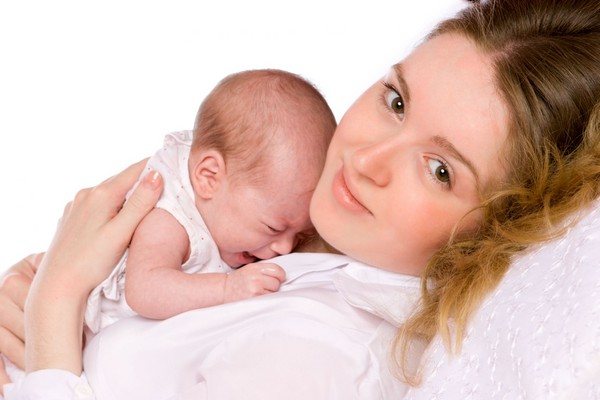
Remember! Green color in itself is not an alarming signal, especially if you noticed it once. The presence of infection in the body can be determined by other signs and general malaise. In some cases, it may be worth checking your white blood cells.
Health to you and your children!
